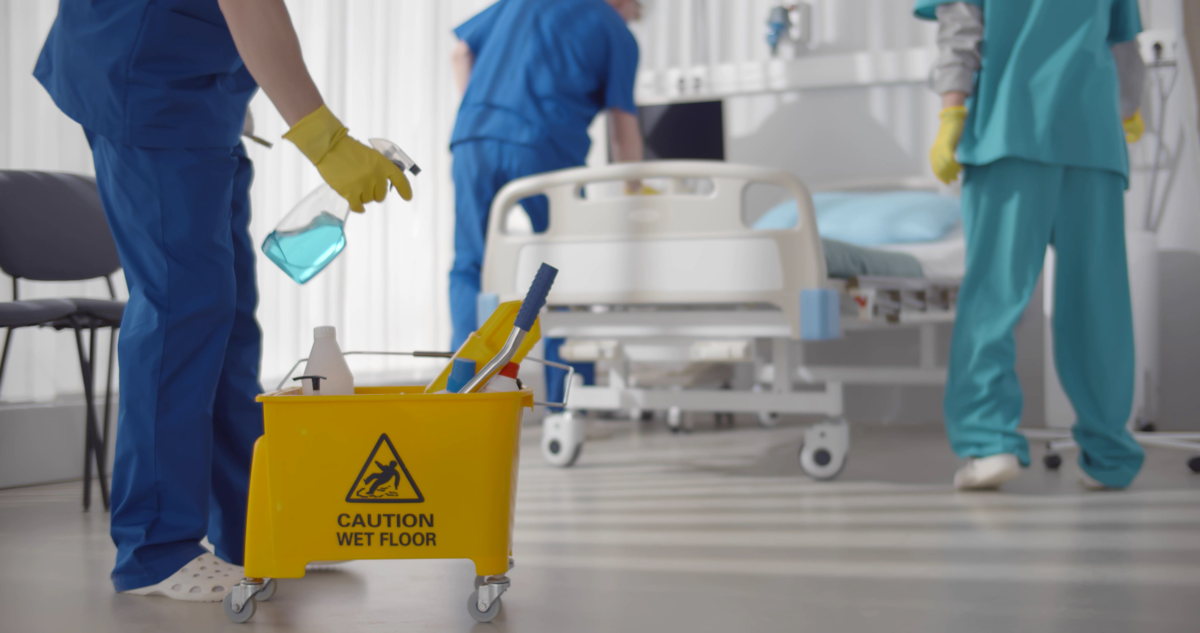Hospital Cleaning in 2025|Why Hygiene Matters More Than Ever
Cleanliness has always been essential in hospitals, but in 2025, hospital cleaning is more critical than ever. A clean and sanitized medical environment protects patients, supports staff health, and builds public trust. Proper cleaning goes far beyond appearance—it plays a vital role in preventing infections and maintaining healthcare standards.
Why Hospital Cleaning Is So Important
- Infection Prevention: Hospitals care for vulnerable patients. Effective cleaning reduces the spread of bacteria and viruses.
- Regulatory Compliance: Healthcare facilities must meet strict hygiene standards to remain operational.
- Patient Confidence: A spotless hospital gives patients reassurance that they are in safe hands.
- Staff Protection: Doctors, nurses, and staff need clean workspaces to reduce exposure to harmful contaminants.
👉 In short, hospital cleaning safeguards everyone inside a healthcare facility—from patients to staff.
Key Areas of Hospital Cleaning
1. Patient Rooms
- Disinfecting beds, doorknobs, and frequently touched surfaces
- Cleaning floors, windows, and air vents
- Safe disposal of medical waste and linens
2. Operating Rooms
- Deep sterilization after every procedure
- Use of hospital-grade disinfectants
- Regular maintenance of ventilation and filtration systems
3. Common Areas
- Cleaning lobbies, hallways, elevators, and waiting rooms
- Disinfecting chairs, handles, and reception areas
- Maintaining a fresh and hygienic atmosphere for visitors
4. Restrooms
- Frequent sanitization of toilets, sinks, and mirrors
- Replenishing soap, sanitizers, and paper supplies
- Odor control and ventilation management
Benefits of Professional Hospital Cleaning
- Strict Protocols: Professional cleaners follow detailed, hospital-approved procedures.
- Consistent Quality: Regular deep cleaning prevents contamination in high-touch areas.
- Compliance and Safety: Ensures healthcare facilities meet local hygiene regulations.
- Long-Term Savings: Preventing infections reduces treatment costs and hospital downtime.
Common Questions About Hospital Cleaning
Q: How often should hospitals be cleaned?
A: Daily cleaning is mandatory, while operating rooms and intensive care areas require sanitization after every use.
Q: What products are used for hospital cleaning?
A: Only medical-grade disinfectants and sterilization agents approved by health authorities.
Q: Why hire professionals instead of internal staff?
A: Professional cleaners are trained to handle biohazards and meet strict hygiene standards.
Tips for Hospital Management
- Create a clear daily and weekly cleaning schedule.
- Use certified cleaning agents and equipment.
- Provide ongoing training for cleaning staff.
- Combine in-house cleaning with periodic professional deep cleaning.
- Regularly review and update hygiene policies.
Official recruitment software
Indeed — https://www.indeed.com/
LinkedIn Jobs — https://www.linkedin.com/jobs/
Eluta — https://www.eluta.ca/
SEEK — https://www.seek.com.au/
Final Thoughts
Hospital cleaning is not just a routine task—it is a foundation of patient care and safety. Maintaining high hygiene standards prevents infections, supports medical operations, and strengthens public confidence.
👉 For better efficiency, explore terms like “hospital cleaning services,” “medical facility cleaning,” “hospital sanitation,” and “infection control cleaning.” Clean environments save lives—and that’s the true goal of every healthcare institution.
